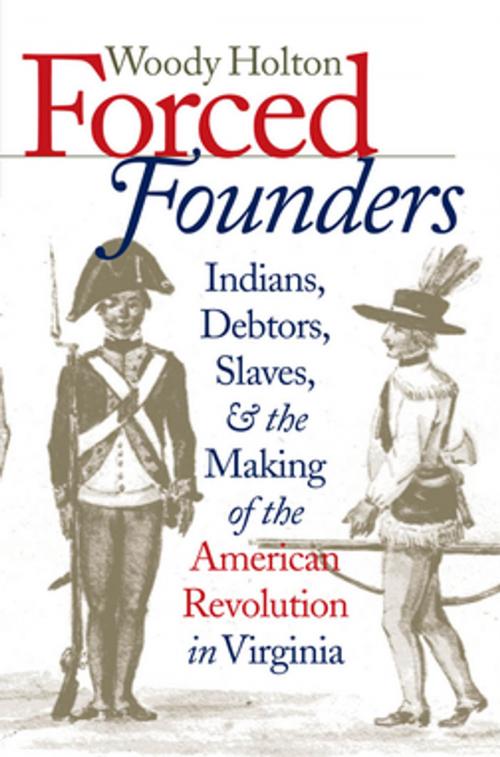Forced Founders
Indians, Debtors, Slaves, and the Making of the American Revolution in Virginia
Nonfiction, History, Americas, United States, Revolutionary Period (1775-1800)| Author: | Woody Holton | ISBN: | 9780807899861 |
| Publisher: | Omohundro Institute and University of North Carolina Press | Publication: | January 20, 2011 |
| Imprint: | Omohundro Institute and University of North Carolina Press | Language: | English |
| Author: | Woody Holton |
| ISBN: | 9780807899861 |
| Publisher: | Omohundro Institute and University of North Carolina Press |
| Publication: | January 20, 2011 |
| Imprint: | Omohundro Institute and University of North Carolina Press |
| Language: | English |
In this provocative reinterpretation of one of the best-known events in American history, Woody Holton shows that when Thomas Jefferson, George Washington, and other elite Virginians joined their peers from other colonies in declaring independence from Britain, they acted partly in response to grassroots rebellions against their own rule.
The Virginia gentry's efforts to shape London's imperial policy were thwarted by British merchants and by a coalition of Indian nations. In 1774, elite Virginians suspended trade with Britain in order to pressure Parliament and, at the same time, to save restive Virginia debtors from a terrible recession. The boycott and the growing imperial conflict led to rebellions by enslaved Virginians, Indians, and tobacco farmers. By the spring of 1776 the gentry believed the only way to regain control of the common people was to take Virginia out of the British Empire.
Forced Founders uses the new social history to shed light on a classic political question: why did the owners of vast plantations, viewed by many of their contemporaries as aristocrats, start a revolution? As Holton's fast-paced narrative unfolds, the old story of patriot versus loyalist becomes decidedly more complex.
In this provocative reinterpretation of one of the best-known events in American history, Woody Holton shows that when Thomas Jefferson, George Washington, and other elite Virginians joined their peers from other colonies in declaring independence from Britain, they acted partly in response to grassroots rebellions against their own rule.
The Virginia gentry's efforts to shape London's imperial policy were thwarted by British merchants and by a coalition of Indian nations. In 1774, elite Virginians suspended trade with Britain in order to pressure Parliament and, at the same time, to save restive Virginia debtors from a terrible recession. The boycott and the growing imperial conflict led to rebellions by enslaved Virginians, Indians, and tobacco farmers. By the spring of 1776 the gentry believed the only way to regain control of the common people was to take Virginia out of the British Empire.
Forced Founders uses the new social history to shed light on a classic political question: why did the owners of vast plantations, viewed by many of their contemporaries as aristocrats, start a revolution? As Holton's fast-paced narrative unfolds, the old story of patriot versus loyalist becomes decidedly more complex.















